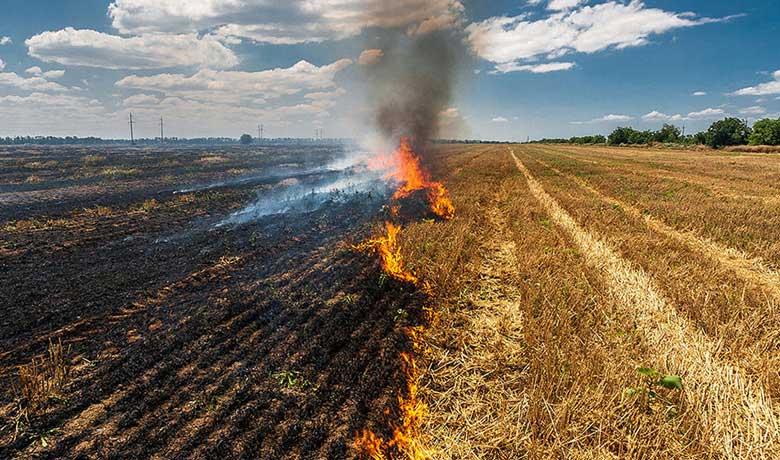Study Recommends Special Incentives for Small Farmers to Scale up Stubble Management

Image credit: TERI
Special incentives for small farmers to scale up the adoption of paddy stubble management (PSM) measures and an increase in area under short-duration crop varieties are some of the key recommendations the Punjab Agricultural University (PAU) has made in a new study.
The study found that farmers believed the adoption of paddy stubble management raises their financial burden, and also several of them were unaware that in-situ management of paddy straw reduces the use of fertilisers, insecticides and weedicides.
The Department of Economics and Sociology of the Ludhiana-based PAU conducted an impact assessment study of the central sector scheme for the promotion of agricultural mechanisation for in-situ paddy stubble management in Punjab.
PAU principal economist Sanjay Kumar said the state government had asked to conduct the study in March last year.
Funded by the state agriculture department, the study covered 110 villages in 22 districts of the state, Kumar said.
The study selected 2,160 farmers – 1,320 adopters of paddy stubble management interventions and the rest non-adopters.
Paddy straw burning in Punjab and Haryana is one of the reasons behind the alarming spike in air pollution levels in the national capital in October and November every year.
As the window for Rabi crop wheat is very short after the paddy harvest, farmers set their fields on fire to quickly clear off the crop residue. Punjab generates around 180 lakh tonnes of paddy straw annually.
According to the study, 90% of farmers were aware that paddy stubble burning leads to the deterioration of air quality and increases the incidence of smog.
"Most farmers (84%-92%) agree that the burning of paddy stubble increases respiratory problems and eye irritation and causes suffering to pro-morbid persons, elderly people, pregnant women, and children," it noted.
Most farmers found that the use of crop residue management machines led to an increase in their financial burden.
"Almost all farmers believe that the adoption of paddy stubble management (PSM) raises financial burden as rentals of PSM machinery are high. More than 95% of them also reported that PSM increases labour use and hence, the cost of stubble management," the study pointed out.
"More than 97% of the farmers believe that PSM requires high-powered tractors. More than 80% of farmers also report inadequate availability of such tractors and PSM machinery and skilled manpower to operate them," it added.
"Less than 20% of farmers believe that PSM reduces fertiliser use, only about one-third believe that it reduces insecticide or weedicide consumption and an even lesser number believe in any reduction in irrigation and the use of micro-nutrients," said the study.
Among recommendations for scaling up the adoption of paddy stubble management by farmers, the study said small farmers must be offered special incentives to encourage them to manage stubble. It also laid stress on training them.
"As small farmers are less likely to adopt, there must be special incentives for them to encourage the adoption of PSM. The small farmers must also be encouraged to participate in the training on PSM, as participation in training improves the chances of adoption of paddy stubble management," it said.
The PAU study also recommended additional funds for the development of short-duration paddy varieties to replace them with long-duration ones.
"The area under short-duration varieties needs to be increased and that under long-duration varieties needs to be discouraged to promote paddy stubble management," said the study.
It also recommended a small shift of area to basmati rice which will also help in reducing stubble burning in the state.
However, the targeted area under basmati must be fixed by examining the future demand and price outlook of the crop, it added.
The study also recommended that the process of applying for and receiving subsidies on crop residue management machines may need more simplification and must also aim at eliminating delays.
It said the current level of training in the villages has been inadequate. "There is a need to allocate more resources for training," the study added.
Get the latest reports & analysis with people's perspective on Protests, movements & deep analytical videos, discussions of the current affairs in your Telegram app. Subscribe to NewsClick's Telegram channel & get Real-Time updates on stories, as they get published on our website.
























